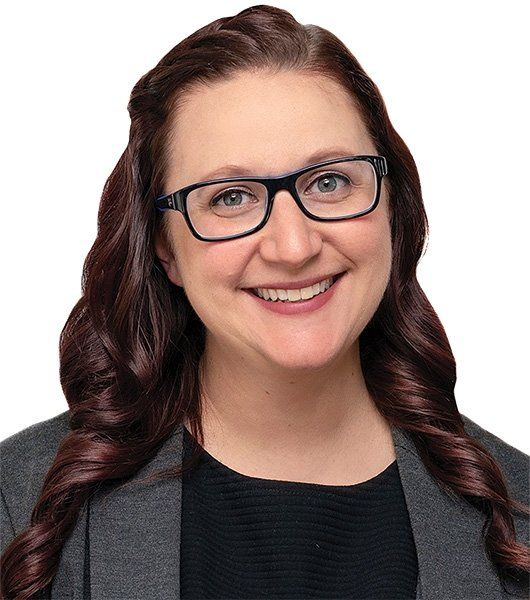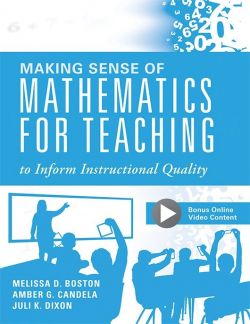
Amber Candela
Amber G. Candela is an assistant professor of mathematics education at the University of Missouri–St. Louis (UMSL). She teaches mathematics methods classes for prospective elementary, middle, and high school teachers in the teacher education program at UMSL.
Amber Candela
Amber G. Candela is an assistant professor of mathematics education at the University of Missouri–St. Louis (UMSL). She teaches mathematics methods classes for prospective elementary, middle, and high school teachers in the teacher education program at UMSL. Previously, she taught middle school mathematics in both suburban and urban settings in Charlotte, North Carolina and East Harlem, New York. Dr. Candela is focused on supporting teachers’ implementation of cognitively challenging tasks so every student has access to high-quality mathematics. In 2016, she was honored with the Gitner Excellence in Teaching Award at UMSL and in 2018 with the Missouri Council of Teachers of Mathematics Outstanding Post-Secondary Educators Award.
Dr. Candela is an active member of the National Council of Teachers of Mathematics (NCTM) and the TODOS Mathematics for All organization. She has given presentations at the state, regional, and national level on supporting teachers’ selection and use of cognitively demanding tasks and using the Instructional Quality Assessment as a reflection tool. She has worked in schools, providing professional development on selecting and implementing tasks, and is dedicated to supporting every learner in the classroom and focusing on how tasks are implemented in inclusive settings.
Dr. Candela received a bachelor’s degree in mathematics and education from St. Bonaventure University, a master’s degree in mathematics education from Appalachian State University, and a doctorate in mathematics education from the University of Georgia. To learn more about Dr. Candela’s work, follow @AmCan36 on Twitter.
DNA Mathematics
DNA Mathematics experts understand that educators need to experience mathematics as both teachers and learners. Work with these experts to deepen your understanding of mathematics and facilitate students to do the same.
Presentations by Amber Candela
- Improve Your Talk Moves: “Link” Students’ Responses and “Press” for More
- Good Tasks, Then What? Supporting Student Engagement during Tasks
- Using the Instructional Quality Assessment to Promote Access and Equity in Mathematics through High Cognitive Demand Tasks in Inclusive Classrooms
- Using the Instructional Quality Assessment as a Professional Development Tool with Mathematics Teachers
- Using the Instructional Quality Assessment Observation Tool in a Professional Development Capacity
- Exploring Teachers’ Implementation of Cognitively Demanding Mathematics Tasks
- Mathematics Teachers’ Perspectives Affecting the Implementation of High Cognitive Demand Tasks
- Mathematics Teachers’ Perspectives of Factors Affecting the Implementation of High Cognitive Demand Tasks
- Middle School Mathematics Teachers’ Use of the Five Practices When Implementing High Cognitive Demand Tasks
- Teachers’ Perspectives of High Cognitive Demand Tasks
- Mathematics Teachers’ Perceptions of Factors Affecting the Use of High Cognitive Demand Tasks
- Middle School Mathematics Teachers’ Perspectives of Implementing High Cognitive Demand Tasks
- It Only Takes a Pattern—Tasks That Engage
- Implementing Tasks That Allow Access for All Students in Inclusive Settings
- Practitioners Working Together to Engage Struggling Learners in Mathematics
- Preparing New Teachers to Break Down Barriers and Cross Boundaries in Mathematics Classrooms
- Supporting Students in Modeling Proportional Reasoning
- The Affordances and Constraints in Implementing Technology-Enhanced Lessons in Elementary Mathematics Classes

